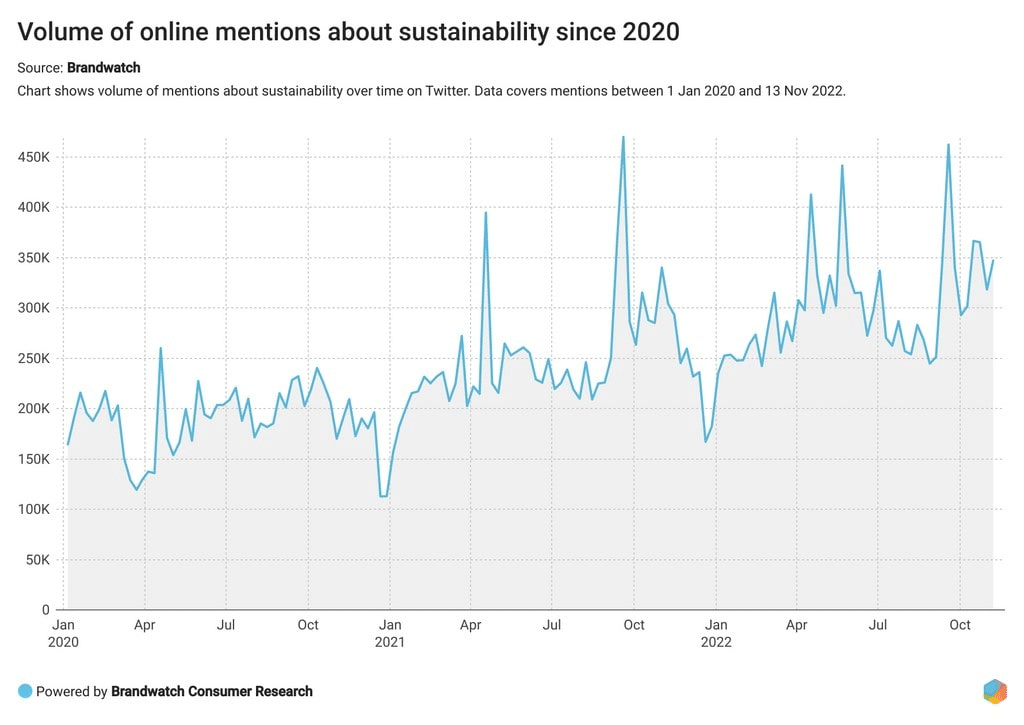As we cross the half-way point of 2023, the social media marketers amongst us may well be wondering what lies ahead for the rest of the year and beyond. A quick search in to social media trend predictions will throw out words which we’ve been hearing for the past couple of years – Tik Tok, AI and analytics all feature heavily, of course – but what are the developments in these areas, and what does this mean for the social media accounts that we maintain day-to-day?
With 2023 proving to be one of the most financially turbulent years for some time, the rise of low-cost marketing was almost inevitable. It’s easy to make budget cuts – what isn’t so easy is making cuts which don’t come at the expense of the content. 2023 is the year that we throw out the industry rule book that states that cost = quality. Many brands have subtly shifted their social media marketing strategy over the past months to focus on content that is relevant, not subjectively luxury.
The Evolution of Video:
If you’re not familiar with unpolished video content, simply spend some time scrolling through your Instagram reels or Tik Tok feed. It won’t take you long to identify the creators and business utilising unpolished content – characterised by low production costs and the ability to appear relatable to viewers. Although this style of content initially seems more appropriate in B2C settings, don’t be fooled – brands such as Pleasing, Duolingo and Mailchimp can all be seen making use of unpolished content on their channels.
Another great way to do more with less is by repurposing long-form video content. One 30-minute video can be made in to countless 15 second Tik-Toks, Instagram and Facebook reels, at a fraction of the cost of starting from scratch.
Content Creators Vs. Large Influencers:
As of 2023, the definitions of content creators and influencers has evolved. In the past, these terms were interchangeable. However, with a small but powerful portion of influencers gaining massive followings, a gap has formed between those with high numbers of followers and those without.
These days, not all content creators can be classified as influencers. The term “influencer” now refers to individuals with established platforms and pricey rates. On the other hand, smaller-scale content creators can produce top-quality content at a more affordable cost.
Working with content creators has its benefits. They produce brilliant social content without requiring an established social media presence. Additionally, they’re more relatable and have yet to establish strongly opinionated views or brand ties that may create a bias among your audience. They offer a neutral and fresh perspective that could do wonders for your brand’s social media presence.
It’s not just cost that is a motivating factor in the social media trends of today. Another huge influence is developments in technology and software.
AI – you can’t escape it:
Whether you are fascinated or living in fear of AI, one thing is clear; it’s here to stay. Despite the horror stories many of us have heard, it is slowly becoming clear that marketers aren’t going to be replaced by AI, but they will be replaced by marketers who understand it. Despite rapid developments, many AI technologies still in their infancy, making understanding the industry a constant learning curve (and a full-time job in itself!).
We have, however, seen the emergence of many handy AI tools which are designed to increase efficiency in social media marketing. Munch is a great tool for video editing, and the likes of Grammarly, Jasper and Chat GPT can cut down hours of time spent writing post content.
Say goodbye to cookies:
As a marketer, cookies are essential to understanding your audience and monitoring their behaviour. These small bits of data offer insight into your consumer base and inform your advertising strategy. However, Google’s upcoming changes to its cookie policy may impact how we gather and use this information.
Starting in 2023, Google plans to phase out third-party cookies on Chrome browsers. Since Chrome has a 65% market share, this change will heavily impact marketers. The move towards greater privacy is driving Google’s decision, and it’s not the only tech giant making moves: Apple recently eliminated access to device identifiers on iOS.
For marketers, this means we need to adapt our social media and digital strategies to gather data in a cookie-less future. Many are concerned about losing the ability to track the right data: 41% of marketers to be exact. But there is opportunity even amidst these changes. A cookie-less future may result in a rebalance of digital ad spending towards more brand-building and less over-targeting.
Do people really still use Facebook?
You might be surprised at the answer to this question! Studies show that Facebook usage significantly increased in 2022, with 2.96 billion people across the globe now using the platform. This means that the chances are, someone in your target demographic is using Facebook. After all, it’s not just 20-year-olds consuming social media content in 2023. As a creator, don’t neglect to publish your Instagram reels to Facebook. It’s literally creating an extended reach for your content without the additional work. Other tools such as Facebook groups can also be a free entry point to your sales funnel.
Another factor we need to consider when examining these trends is consumer behaviour. The rise of ethical brands and sustainability are two trends which have emerged from a shift in consumer behaviour, as a result of people becoming more climate-conscious and educated on the world around them.
The rise of ethical brands:
Creating a strong ethical framework is crucial for businesses looking to thrive in today’s competitive market. Research shows that companies committed to ethical practices across all operations are more likely to achieve sustained profitability compared to those that don’t prioritise ethics. In fact, Ethisphere’s list of World’s Most Ethical Companies reveals that such companies outperform their counterparts by around 7%.
Ethical foundations drive positive relationships with stakeholders, including customers and employees, leading to greater loyalty and overall effectiveness. To reap these benefits, brands should prioritise ethical principles throughout their digital strategy, which can pay off in the year 2023 and beyond.
Sustainability in business
On a similar thread, the urgency of sustainability is more pressing than ever. The conversation surrounding it has grown significantly over the past few years, reaching a staggering 1.5 million mentions per month in September and October of 2022 alone. This growing concern has led to global businesses taking notice: 80% of the 850 studied in 2022 indicated plans to increase their investment in sustainability.
The benefits of eco-friendliness also couldn’t be clearer from a customer perspective, 77% of consumer products and retail organisations noted that it led to an uptick in customer loyalty. Brands must take heed of this growing interest in sustainability and its increasing importance to avoid alienating consumers who are looking for eco conscious businesses.

If you could use some help with your social media strategy, why not book a meeting with redPepper, the leading experts in social media marketing in Colchester.
Sources:
https://open.spotify.com/episode/4IDSFvYzPv91VjzzYCmydx?si=f8320ccd41d14fbc
https://open.spotify.com/episode/4KUxXjojH0Vayh2rJGVuWo?si=b3d7816e265349ca
https://www.brandwatch.com/reports/2023-digital-marketing-trends/view/










